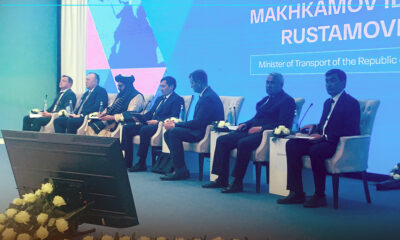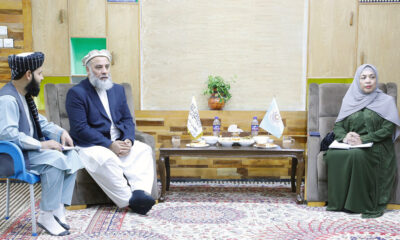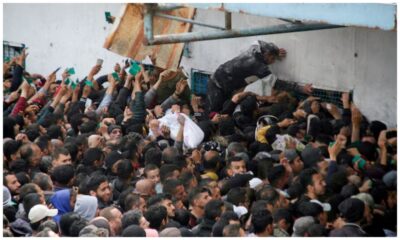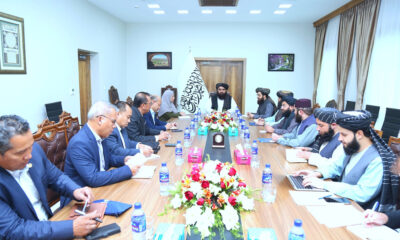Business
Pakistan repeats call for release of Afghan assets
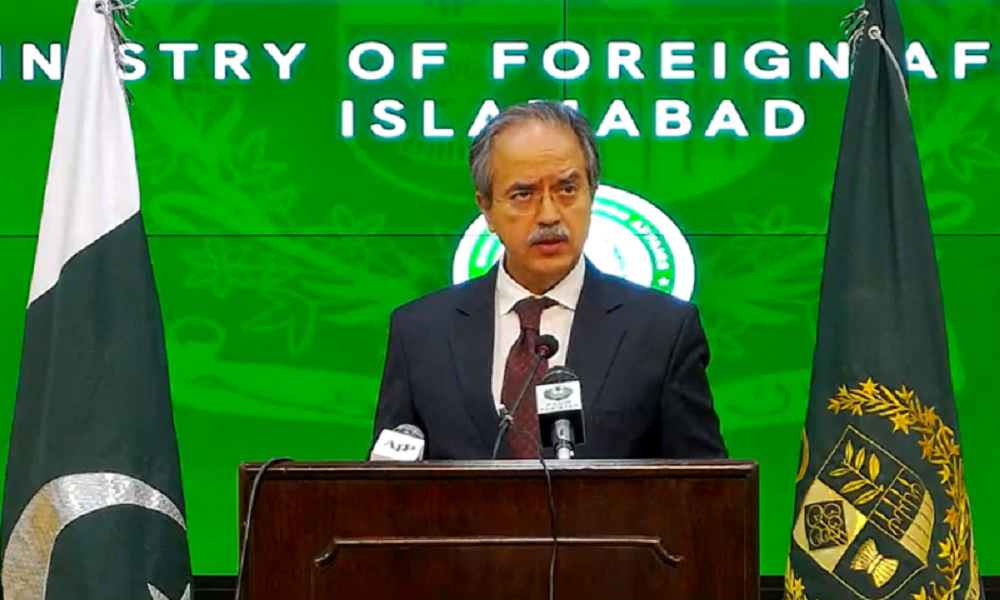
Pakistan on Friday once again called on the United States to release Afghanistan’s frozen assets and conditionally allow the Islamic Emirate of Afghanistan (IEA) to use the funds to assist both economic and humanitarian crises in the country.
Asim Iftikhar, a spokesman for Pakistan’s foreign ministry, said at a press conference, that the frozen assets held in the US should be released urgently and “in a manner that would make it easier for the interim authorities to utilize this money.”
This comes after US officials said last week they had no plans to release Afghanistan’s foreign reserves, citing concerns the funds could end up in the hands of terrorists after the leader of al-Qaeda was killed in Kabul.
President Joe Biden’s administration froze $7 billion after the IEA took power last year. Earlier this year, Biden issued an order to split the money equally between the families of victims of the September 11 terror attacks and humanitarian aid for Afghans.
Iftikhar said that the release of Afghan assets “shouldn’t be done without strings attached.” He also noted that the US had provided a lot of humanitarian assistance to Afghanistan over the past year.
Referring to the recent visit to Pakistan by US CENTCOM chief General Michael Kurilla, and other bilateral engagements, Iftikhar said that in addition to his country’s bilateral agenda, the two sides also discussed the situation in Afghanistan.
Business
Azizi calls on Malaysian investors to invest in Afghanistan
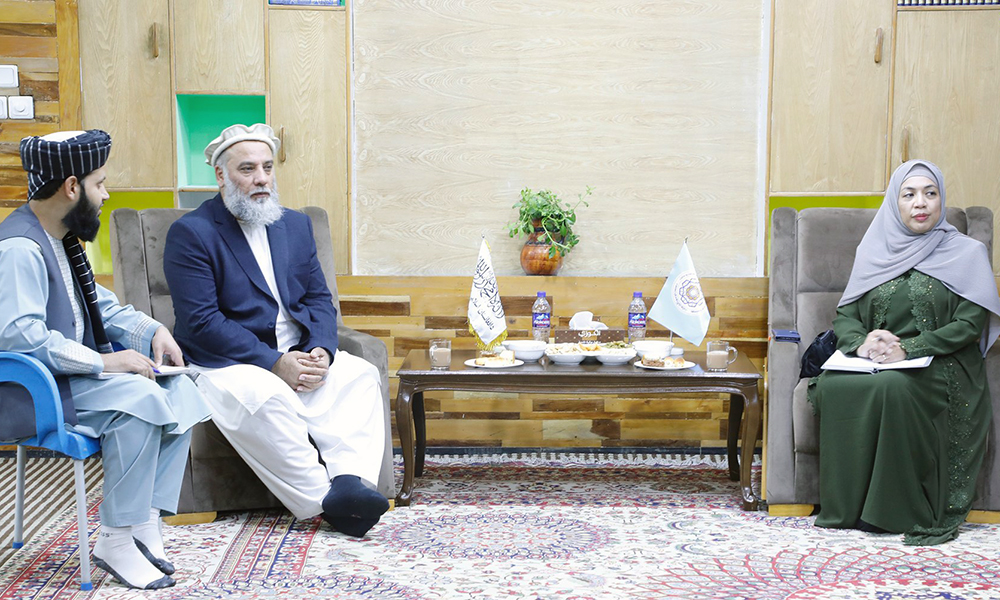
Nooruddin Azizi, Acting Minister of Commerce and Industry, met with representatives from the ministries of foreign affairs, defense and interior of Malaysia, along with other senior officials, on Wednesday and called on Malaysians to invest in Afghanistan.
The visiting delegation is being led by senior diplomat Dr. Shazelina Zainul Abidin.
According to the IEA’s foreign ministry, the two sides discussed bilateral trade, holding a business communication conference to strengthen trade relations between the two countries, the trade balance between Afghanistan and Malaysia, and creating a market for Afghan products, including carpets, cotton, and minerals.
According to the ministry, at the end of the meeting, the Acting Minister emphasized the increase of investment from regional countries in Afghanistan and called on Malaysian investors to also invest in Afghanistan.
Business
Afghanistan starts exporting via railway to Turkey

The Ministry of Interior says that Afghanistan has started exporting goods to Turkey via the Herat-Khaf railway line.
In a post on X, the ministry said: “Afghanistan’s exports to Turkey started in a calm atmosphere through the Herat-Khaf railway line.”
The ministry added that one train will run daily for a month and then two trains will run daily.
According to the ministry, the security of Khaf-Herat railway line is provided by the guards of the National Public Protection Agency.
Khaf-Herat railway project not only connects Iran and Afghanistan by rail, but also completes a 2,000-kilometer route along the east-west rail corridor from China, through Uzbekistan, to Afghanistan, to Iran, and on to Turkey and Europe.
As a landlocked country, this railway network will provide a safe route to connect with Europe via Iran’s railway network and Iran’s southern ports.
This railway line is strategic for trade between Iran and Afghanistan and will allow six million tons of goods to be sent between the two countries.
Business
Afghanistan, Kazakhstan to hold joint expo in Kabul
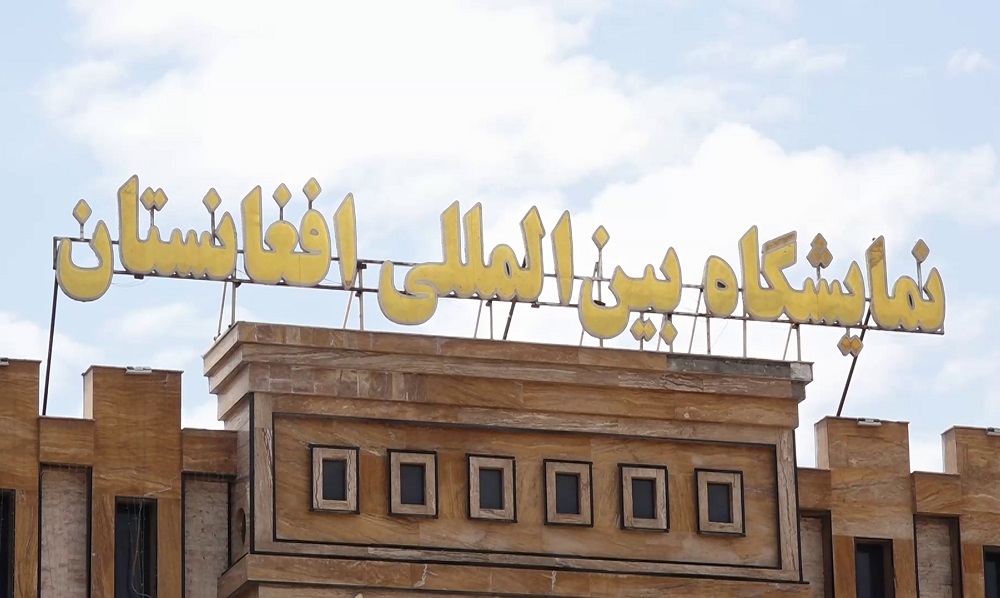
A joint expo between Afghanistan and Kazakhstan will be held in Kabul in the next four days, officials said on Sunday.
Officials of the Ministry of Industry and Commerce said that the two-day expo will be held for the purpose of expanding and strengthening trade relations between the two countries.
“This expo will be held as a follow-up of the Kazakh-Afghan international expo, which was held in the city of Astana, Kazakhstan, with the participation of a large delegation of the government and the private sector of the Islamic Emirate of Afghanistan,” Abdulsalam Javad Akhundzadeh, the spokesman of the Ministry of Industry and Commerce, said.
“At this expo, domestic products from different sectors of Afghanistan and the Republic of Kazakhstan will be put on display for two days.”
According to officials, 40 large Kazakh companies, and 40 large Afghan companies will exhibit their products.
Mohammad Saber Latifi, head of the Afghanistan International Expo Center, said that fruits, minerals and commercial services will be displayed at the expo.
During the expo, various memorandums of understanding for the trade of goods are also expected to be signed by companies.
-

 Sport5 days ago
Sport5 days agoRashid Khan threatens BBL pullout after Australia postpones Afghanistan T20I series
-

 Sport4 days ago
Sport4 days agoAfghanistan Champions League kicks off with grand opening ceremony
-

 Latest News3 days ago
Latest News3 days agoPakistan’s frontiers minister stresses ‘dignified’ return of Afghan refugees
-

 Regional4 days ago
Regional4 days agoIran’s foreign minister downplays drone attack, says Tehran investigating
-

 Latest News5 days ago
Latest News5 days agoTen people killed by floods in Helmand
-

 Business4 days ago
Business4 days agoAfghanistan’s economic prospects are bleak: World Bank
-

 Latest News4 days ago
Latest News4 days agoMore than 800 Afghan refugees deported from Pakistan in two days
-

 Regional2 days ago
Regional2 days agoIranian president lands in Pakistan for three-day visit to mend ties


